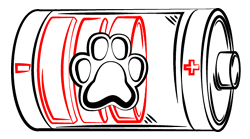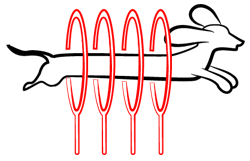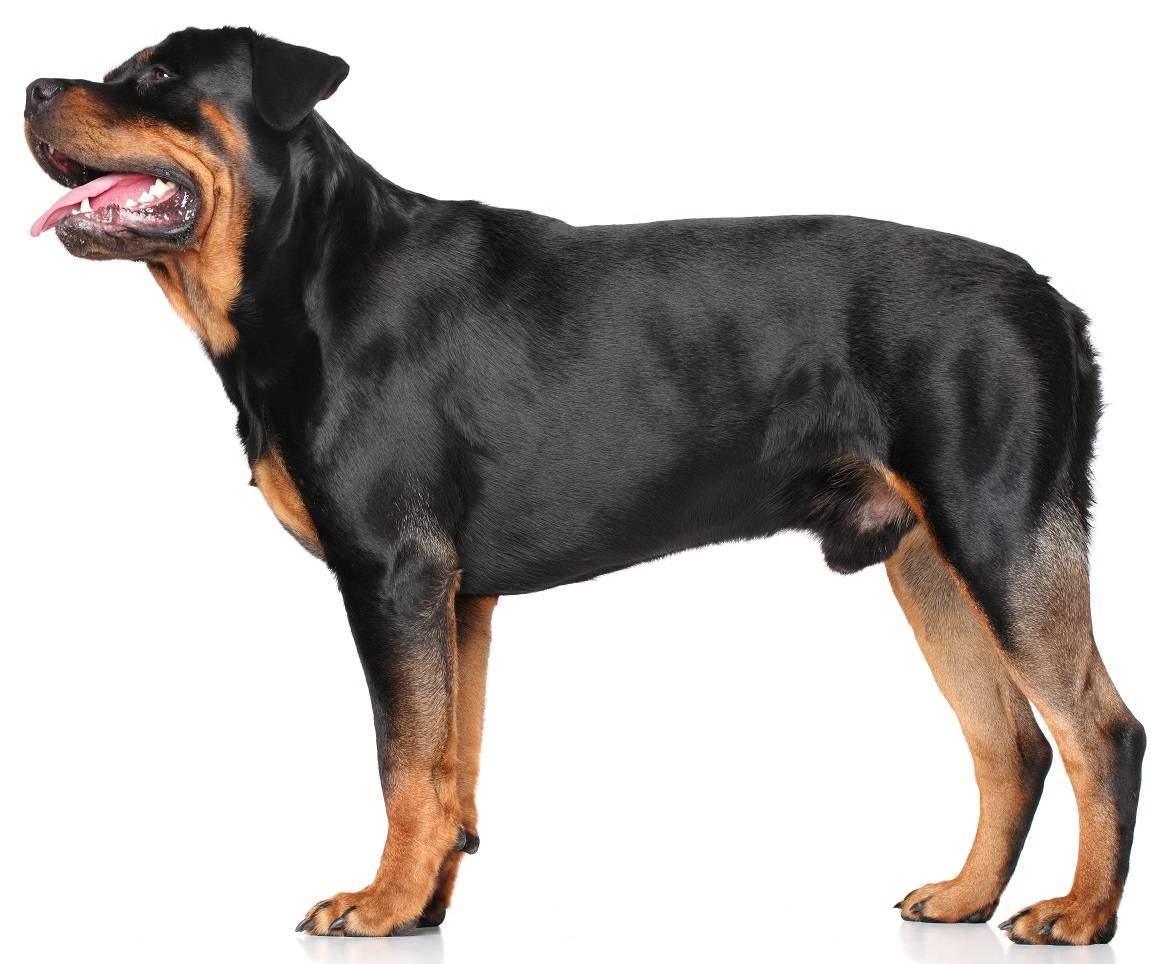
Paws ‘N’ Pups Quickview
Size
| Energy Level
| Trainability
| Paws ‘N’ Pups Rank
|
Characteristics
| Physical Characteristics: Height: 22-27” Weight: 75-130 lbs. Energy Level: Moderate – High | Health & Longevity: 8-12 years Breeders screen for the following conditions:
|
The American Kennel Club recognizes the Rottweiler in the following colors:
| Rottweilers do not have many coat variations. Generally, Rottweilers:
|
Unfortunately, cancers are prevalent in the breed. Like many large, deep chested breeds, Rottweilers are susceptible to gastric torsion (bloat), a life-threatening situation if immediate veterinary intervention is not sought. During periods of growth, some Rottweilers experience Panosteitis, commonly referred to as “growing pains”. It is usually self-limited but the discomfort produced can range from mild to severe. Though tough in many ways, Rotties cannot tolerate weather extremes. Allergies also exist in the breed.
Temperament & Train-ability
Affectionate with their family, Rotties are typically reserved with strangers. Confident, good-natured and devoted to their people, Rottweilers possess the potential to be one of the best companions around, if you have the time and are committed to them. This potential is realized through proper breeding and socialization and plenty of training. A Rottweiler requires an experienced owner, someone who has learned how to deal with challenging dogs; they are not suitable for novices. Known for being naturally protective but not aggressive, if this balance is off, these powerful dogs can become dangerous bullies instead of reliable companions. Unethical or ignorant breeders sometimes produce sharp, aggressive dogs thinking this makes good “guard” dogs. This results in unpredictable and dangerous dogs that can be a nightmare (and huge liability) to live with. Do not cut corners when adding a Rottweiler to your family; take the time to find a truly responsible breeder.
Once you have located a sound dog, the work shifts to you; Rottweilers require great dedication to properly socialize and train. Even a well-bred Rottie left to sit alone in a yard will become a big nuisance very quickly, and a lonely, bored or anxious Rottweiler can cause massive destruction to house and property. If you’re a neat-nick, a Rottie may annoy you; many snore and slobber profusely.
Not highly excitable, most Rotties are docile indoors; still, they are not suited to apartment or condo living. Energy levels can vary quite a bit from couch potato to real go-getter. Your breeder will help you determine the type of dog best suited for your family, and will also help you select one that is compatible. Many Rotties are great family dogs when raised with children, but can easily knock over toddlers with just a small bump, so generally are recommended for older children. Just as your dog will need careful socialization to learn appropriate behavior around children, your children must be taught how to properly interact with your Rottweiler. Never allow children to sit on, attempt to ride or pull ears, etc. Children should be taught how to recognize when a dog needs a break and give them space. Introducing new animals, especially dogs, must be done carefully; Rotties are sometimes aggressive to unknown animals. A Rottweiler is not a good choice for anyone wishing to frequent dog parks.
A well-bred, well-socialized Rottweiler is gentle and loving with their families; they should never be fearful or timid. A naturally protective breed, when fearful, can become over protective and a liability. Rottweilers are susceptible to some breed specific legislation and discrimination. Many insurance companies require extra liability insurance for homeowners who have Rottweilers.
Training is not optional when living with a Rottweiler. An out of control Rottweiler is no fun, and potentially dangerous. These intelligent, strong dogs require consistent, clear leadership. Clarity, guidance and structure without anger or physical force are critical. Using methods relying on force, pain or intimidation are likely to set you and your Rottweiler up in an adversarial relationship based on strength, and you will not come up on the winning end of such a battle. Some Rottweilers can be willful, but even with these dogs, a method based on respect and clear expectations will get you to your goals far more quickly than punitive methods. Positive reinforcement methods have a proven track record of success and will serve you well.
Because early socialization and training are so important for Rotties, many owners take their new pups to a puppy kindergarten class. Select a class that focuses on training and handling, with limited free play. Too many puppies learn nothing but bad habits when given free access to uninterrupted play with other puppies. Behaviors such as bullying can begin in puppyhood; don’t allow your pup to bully other puppies.
Grooming
The Rottweiler sports an easy-care, short double coat. They are moderate shedders, with most of their coat drop occurring in the spring and fall. Weekly brushing and occasional baths will keep hair in the house to a minimum. Ears must be cleaned regularly, and toenails may need to be trimmed; even if your Rottie is walked on concrete, toenail trimming should be part of your regular grooming routine to keep your dog used to having their feet handled. Teeth should also be checked and cleaned as necessary.
Diet
The amount of food a Rottie will require can vary depending on age, activity level, and type of food fed. On average, Rotts will eat 4-10 cups of food, fed in two meals per day; free feeding should be avoided to keep your Rottie at a healthy weight. A high quality food should be fed, but you may not need a high protein food. If allergies surface, a hypoallergenic food may be needed. At such times, some trial and error may be needed to find the right food for your dog. Your Rottie may experience some degree of gas.
Many Rottweilers are prone to overeating and weight gain, which should be avoided by carefully monitoring food intake. A portion of their daily food allotment may be used for training rewards. A constant supply of fresh, clean water must always be available.
Looking for a Rottweiler?
 Find A Rottweiler Breeder |  Rottweiler Puppies For Sale |  Adopt A Rottweiler |
Cost
You can expect to pay upwards of $2,000-$3,500 for a Rottweiler, with some going as high as $5,000-$8,000. Adopting a rescue dog is an option many prefer, in order to give a home to a dog in need. Whether you acquire a dog from a breeder or rescue, do your homework to be assured that the temperaments of the dogs are tested and sound.
Ongoing expenditures include the typical supplies, food, and regular vet visits. Additionally, you may need to invest in an extra supply of chew and food-dispensing toys as well as training classes to keep your busy Rottweiler occupied and healthy. Choose chew toys carefully as a Rottweiler with a penchant for chewing can annihilate most toys in a matter of minutes. Remember, too, everything costs more with a large dog; beds, the amount of food needed, as well as veterinary procedures. Don’t forget to consider whether your automobile can safely accommodate an adult Rottweiler.
Paws ‘N’ Pups Ranking
Paws ‘N’ Pups ranks every breed out of 4 with 1 being easiest to integrate into your life and 4 being the toughest – The lower the ranking the better.
Ranking takes into account a few basic factors such as cost, skill level needed, high vs. low maintenance, and how critical regular training is to success. The Rottweiler rates a 4, due to their cost, the skill level needed to raise and keep them satisfied, and their need for ongoing training and mental stimulation.
Breeds Similar To Rottweiler
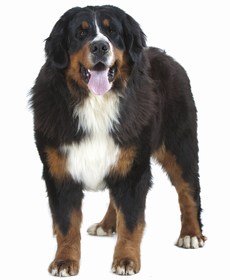 Swiss Mountain Dog | 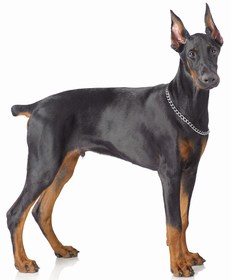 Doberman Pinscher | 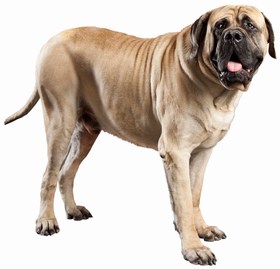 Mastiff | 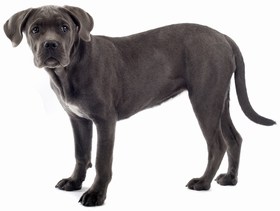 Cane Corso |


